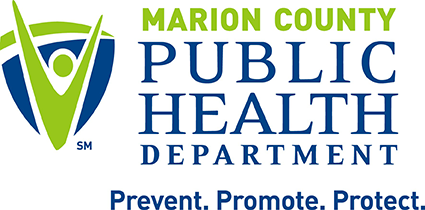School Sign Up
Sign up for testing via our online scheduler. Share your school contact person, as well as the number of children in first grade or younger. Our office will prepare forms in English and Spanish, based on the information you provide, and confirm your requested test date, or provide an alternative date if necessary.
Get Started
Testing is the best way
to prevent lead exposure.
Because lead poisoning can occur without obvious symptoms, it’s important to test each child in first grade or younger via a blood screening. Here’s what you need to know about conducting lead testing at your school or child care facility. Get the process down.
How Lead Screening Works
The Marion County Public Health Department created this site and our online scheduler to streamline the lead screening process at your school or child care facility. The testing process includes these steps.

Why Test?
A blood screening is the only way to accurately test children for lead poisoning. Historically, children in Marion County have been under-tested for lead exposure. In 2016, fewer than 12% of young children were tested.
Today, Marion County provides free lead testing to children in first grade and younger to help protect them from lead poisoning and the harm it can do. Lead can cause learning and behavior problems, slow growth and development, and make it difficult for children to pay attention and learn. High levels of exposure can cause irreversible damage to children’s brains and bodies.
Lead exposure isn’t just dangerous, it’s expensive. According to the National Center for Healthy Housing, the average cost of special education for children with elevated blood lead levels over three years is $38,000 per child.
Are you a parent or guardian?
This page is intended for schools and child care administrators.
how Testing Works
4+ WEEKS BEFORE YOUR TEST DATE
Sign up for testing via our online scheduler. Share your school contact person, as well as the number of children in first grade or younger. Our office will prepare forms in English and Spanish based on the information you provide and confirm your requested test date or provide an alternative date if necessary.
3+ WEEKS BEFORE YOUR TEST DATE
A representative the Marion County Public Health Department will drop off hard copies of the forms you’ll need signed in English and Spanish.
Your next steps are to:
Distribute forms: Parents or guardians will need to sign two forms: (1) a consent form and (2) a registration form that includes notice of HIPPA privacy practices. Children may take hard-copy forms home to their parents or guardians. You can also share a link to downloadable forms and collect signed forms electronically. However, we’ll still need you to print hard copies to share with the Marion County Public Health Department.
Share information about lead screening: In addition to sharing the forms, please share with students’ families the provided informational flier from the Centers for Disease Control and Prevention with basic information about lead exposure and screening. Find more information on the Families and Resources pages.
Gather signed forms: The Marion County Public Health Department requires hard copies of all forms. We use the forms to ensure each child’s paperwork has been registered before we process blood samples following the testing event. Forms must pass directly from the school to our department.
1 WEEK BEFORE YOUR TEST DATE
A representative from our office will stop by in person to collect forms and ensure they’re properly signed and in classroom order. We’ll return forms with incorrect or missing information for corrections. We’ll also share information about testing logistics and provide additional student- and family-friendly communications about testing. Watch for a friendly email reminder a couple of days before we stop by to collect your paperwork.
Be sure to remind parents, guardians and children that students should have plenty of liquids and a good breakfast on testing day.
IT’S TESTING DAY!
Our phlebotomist(s) will arrive 30 minutes prior to the agreed-upon time and host your screening as scheduled. Please ensure that a member of your staff is present at all times during testing. Also please make sure children have had plenty of liquids and a good breakfast the morning of testing.
After testing is complete, we’ll email you a survey to ask your opinion about how everything went.
After the testing process is completed, blood samples will be submitted to the Marion County Public Health Department lab for analysis. Test results will be mailed to parents and guardians with any necessary follow-up steps.
School administrators who wish to know the results of lead tests must provide signed release of information forms for each student tested.
Result: Normal
The parents or guardians of children whose lead exposure is at a normal level will receive a written notification from the Marion County Public Health Department in English or Spanish. View a sample letter.
Result: Elevated blood lead level
If a child is found to have an elevated blood lead level equal or greater than the reference value (5 micrograms per deciliter), a representative from the Marion County Public Health Department will contact the child’s parent or guardian to arrange for a confirmatory test. View a sample letter.
Confirmatory testing
For the confirmatory test, a blood sample will need to be taken, preferably from the child’s arm. Parents may contact the Marion County Public Health Department for free confirmatory and follow-up testing. Or, if they prefer, they may contact their child’s health care provider.
Support for children and families
If an elevated level of lead is confirmed, the Marion County Public Health Department will provide an assessment of the child’s home environment. We’ll also examine the child’s history and note behaviors that may increase lead exposure and absorption. Children with elevated blood lead levels and their families also will receive support, which includes nutrition and developmental screening and education, guidance on reducing lead exposure and referrals for nutritional and developmental interventions. We’ll also monitor the child’s blood lead levels to ensure the level is decreasing.







